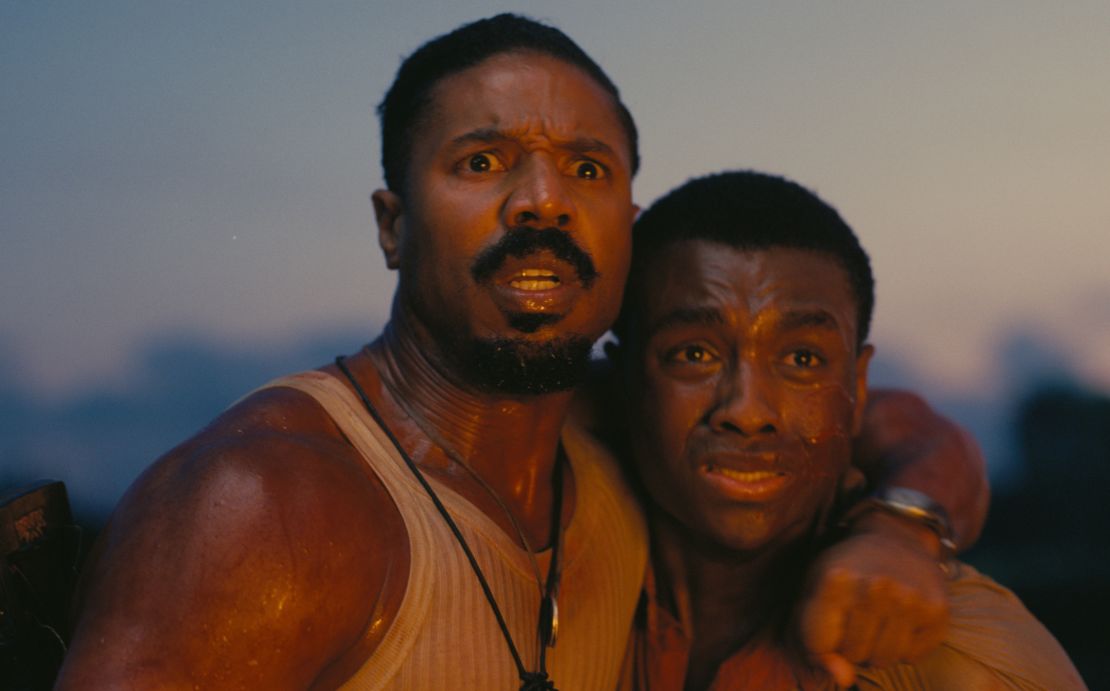

Nope. Can’t use those words anymore.
Racism?
Old news. The racial reckoning took care of that years ago.
Diversity, equity and…
Hush. Now you about to get us in some serious trouble.
It’s a tough time to talk about racism in America. The country is in the midst of a Woke Scare in which the mere mention of terms like “racism” or “diversity” invites retribution. Teachers have been fired, books banned and universities investigated for invoking those terms. The acronym DEI (diversity, equity and inclusion) has become what the author George Saunders calls an “omni-pejorative,” an all-purpose slur that is “deliberately vague.”
It’s no wonder that some Black commentators warn that America is entering a second “nadir,” a term used to describe a low point in race relations that began in the late 1800s and carried into the early 20th century. It was a time when blatant racism was common among White political leaders, and lynchings were routine.
What can a person who cares about racial justice do to get heard in today’s grim racial climate?
Make a vampire movie.
That’s what filmmaker Ryan Coogler has done with “Sinners,” a horror movie that’s become a cultural phenomenon while earning more than $220 million at the domestic box office since its release last month. (The film is produced and distributed by Warner Bros. Pictures, which is owned by CNN’s parent company, Warner Bros. Discovery.)
“Sinners,” which follows Black twin brothers (both played by Michael B. Jordan) who open a juke joint in rural Mississippi during the Great Depression, has earned a 97% rating on Rotten Tomatoes. Critics praise the film’s blend of vampires and Black folklore, offering an array of explanations for its success. Black moviegoers have turned out in large numbers to see it.
But there’s another, more frightening reason why “Sinners” is resonating — one that most critics have missed.
Darkened movie theaters are among the few public spaces left in America where Black people feel free to vicariously express their horror over the recent, head-spinning changes to the country’s racial climate.
The movie has an unspoken message
Many successful films, TV series, songs and other entertainments mine the untapped emotions of their audiences. “Sinners” is no different.
Consider two recent events that occurred soon after the film’s release in mid-April:

In addition, two seismic developments have driven a stake into the heart of the 2025 racial justice movement.
In his second term, President Trump, who has a history of making racist public statements, has waged war on DEI efforts within the government and in public schools and universities.
And the Black Lives Matter movement has been neutered by questions over the organization’s financial transparency and allegations of corruption, along with the inevitable “Whitelash” that follows any racial progress in America.
I’ve witnessed this despair myself. I have never seen such a widespread feeling of hopelessness among my Black friends and family.
“Sinners” is set in the Mississippi Delta in 1932, but part of its appeal are its nods to today’s bleak racial landscape. There are clever references to colorism, mass incarceration and a White vampire who claims he’s a victim of reverse racism. In the film, every movement toward interracial unity is seen as a deadly trap.
“We believe in equality,” says the film’s lead villain Remmick (Jack O’Connell), while flashing a vulpine grin to a group of skeptical Black juke joint patrons.
“Can’t we be for one night family?” he asks.
We can’t, Coogler’s movie implies. There’s not a single sympathetic White character in the film.
That’s the movie’s unspoken message: White America sucks the life out of Black culture, dangling promises of equality that can never be.
The most chilling thing about ‘Sinners’ is not onscreen
I watched “Sinners” in a theater filled with Black people. There I saw something I hadn’t seen since my father snuck me into theaters when I was a boy to watch 1970s “Blaxploitation” films like “Superfly” and “Blacula.” When a Black character in “Sinners” dispatched a racist White character at point-blank range in a particularly gruesome way, many people in the audience whooped and applauded.

“We was never going to be free,” a Black character tells another near the end of the film, after their lofty plans fail.
“Sinners” does offer plenty of Black Joy. There are scenes depicting the beauty and resilience of Black culture — the sweaty transcendence of our music; the West African spirituality that we blended with Christianity to make something new; the playfully raucous way Black folks talk to one another when White folks ain’t around.
For 2 hours and 17 minutes, Black people and their allies can sit in a darkened theater and still believe that Black lives matter. They can escape into a story where Black characters affirm their anger and disenchantment — and not have to worry about getting fired, arrested or losing their funding.
And yet this is one of the most frightening movies I’ve ever seen — not because of anything on screen, but because of its undercurrent of Black despair.
“Nothing could be a more terrifying backdrop for a story involving creatures of the night than a world already determined to ignore your screams for help,” wrote critic Cuba Jimenez in an essay about the movie.
That sentiment is the other monster that stalks the screen in “Sinners” — the kind of despair can’t be stopped by garlic or a crucifix.
Screenings of “Sinners” may be one of the few public places left where Black Americans can freely express their emotions.
And that’s more chilling than any drooling monster a filmmaker can conjure.
John Blake is a CNN senior writer and author of the award-winning memoir, “More Than I Imagined: What a Black Man Discovered About the White Mother He Never Knew.”